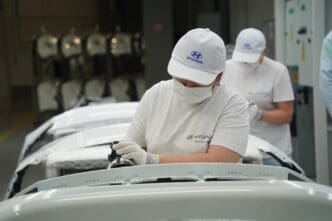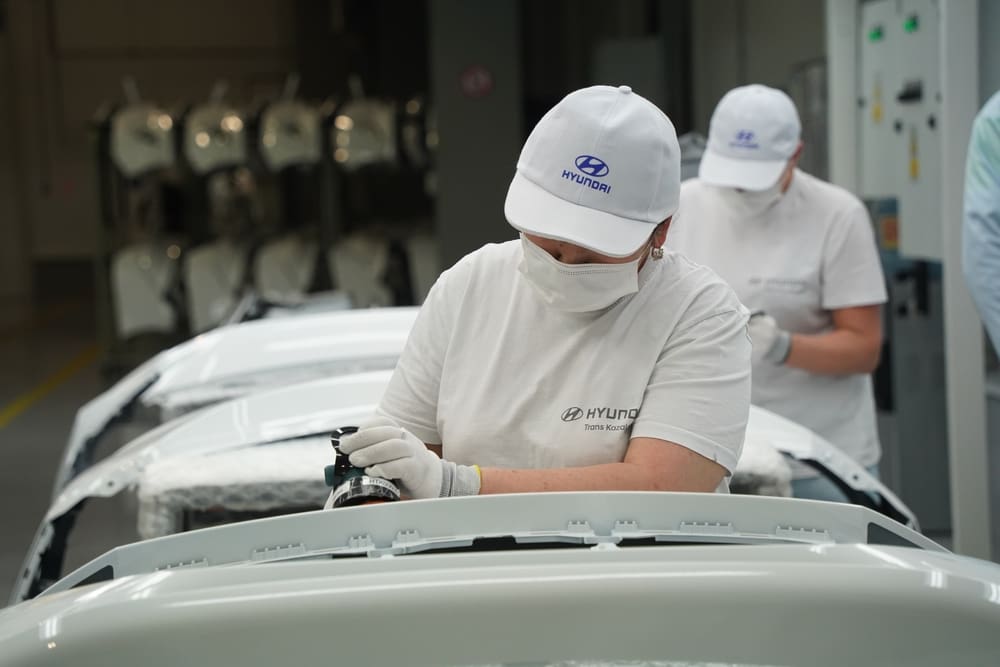Executive Summary
The Story So Far
Why This Matters
Who Thinks What?
Over 300 South Korean workers, who were detained by U.S. immigration authorities in Georgia last week, arrived back home in Seoul on Friday, concluding an incident that has reportedly strained the close bilateral relationship between the United States and South Korea. The workers’ detention and subsequent return have sparked public outrage in South Korea and raised questions regarding the economic partnership between the two nations.
Return Home and Public Reaction
Upon their arrival at Seoul’s international airport from Atlanta, a small crowd, including family members, awaited the workers. One individual displayed a banner featuring an image of an ICE agent and Donald Trump, bearing the message, “We’re friends! Aren’t we?” Tearful reunions followed, with family members expressing relief and distress over the ordeal.
One mother, identified only as Park, shared her gratitude for her son’s healthy return, noting her concern for his allergies during his detention. She described the thought of him being handcuffed and shackled as “deeply traumatizing.” Another mother recounted her distress watching videos of the immigration raid, expressing hope for her son’s future safety while stating her reluctance to send him back to the U.S. for work currently.
Details of the Detention
The workers reportedly endured a week of confusion and fear, having been chained up during the raid and held for days in detention facilities. Simultaneously, a diplomatic “maelstrom” unfolded, with South Korea’s top diplomat traveling to Washington to negotiate their release amidst rising public fury back home.
U.S.-South Korea Alliance
The United States and South Korea have maintained a strong alliance since the end of the Korean War in 1953, with cooperation intensifying in recent years. South Korea also hosts the U.S. military’s largest overseas base. Images of skilled workers being handcuffed and shackled by U.S. immigration agents have ignited significant anger in South Korea, prompting concerns about the foundation of their economic and political partnership.
Economic Investment and Visa Status
The incident occurred months after an August summit between President Trump and South Korean President Lee Jae Myung, which included commitments for billions of dollars in U.S. investment. Auto manufacturer Hyundai, for instance, had pledged $20 billion towards U.S. investment efforts. The raid on a battery plant in Georgia, co-owned by Hyundai and LG, reportedly surprised many given President Trump’s previous involvement in securing such investment.
The visa statuses of the detained workers remain a point of contention. Immigration authorities claimed many had entered the U.S. illegally or overstayed their visas, a claim that lawyers representing the workers dispute, insisting their clients were legally employed. It is currently unclear whether these workers will be permitted to return to the U.S., what the future holds for Korean investment in the U.S., or the long-term prospects for the Hyundai plant.
Impact on Investment and Plant Operations
South Korea’s president voiced concerns that the situation was “very confusing” for Korean companies operating in the U.S., potentially causing businesses to question future investments and leading to a “considerable impact on foreign direct investment in the US.” Negotiations are reportedly ongoing to explore the creation of new visa categories or an increase in visa quotas for South Korean workers.
The battery plant, slated to be Hyundai’s first fully electrified vehicle and battery manufacturing campus in the U.S., is now facing a minimum startup delay of two to three months. Many of the detained individuals were employed by suppliers to LG. While the plant may eventually resume operations, a lingering sense of betrayal in South Korea and a new wariness among its companies regarding U.S. investment could persist much longer.








